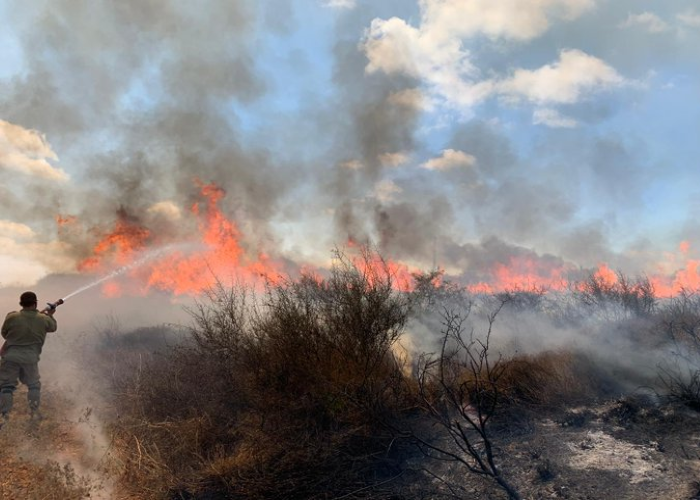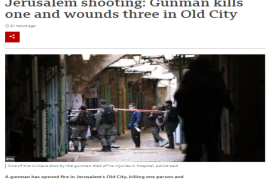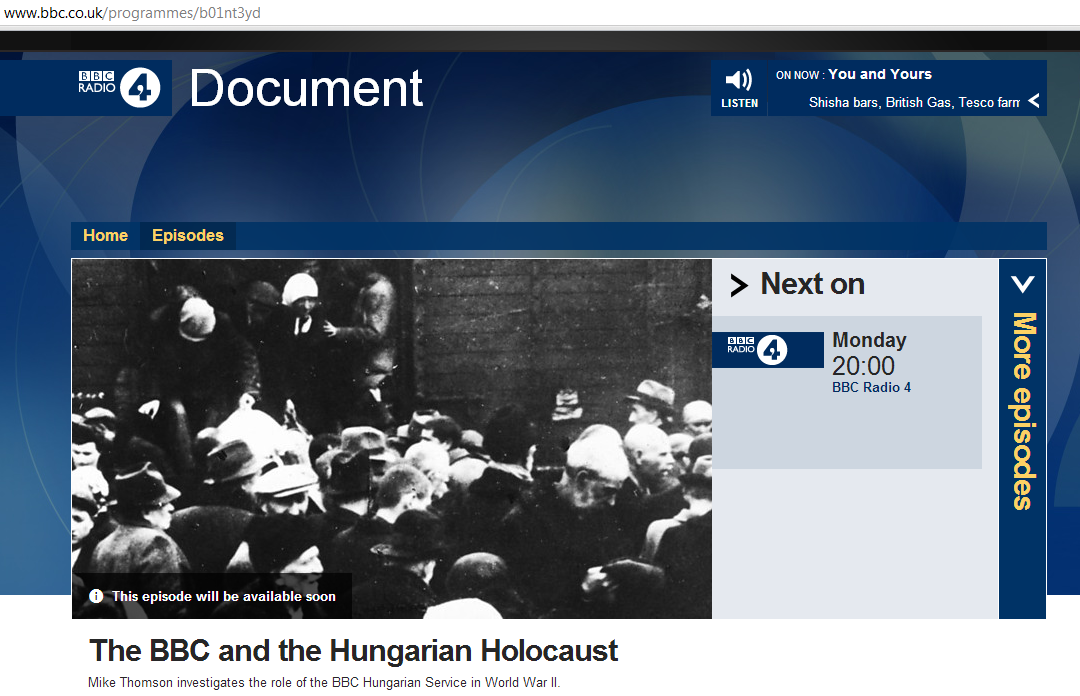As documented in a previous post, listeners to the BBC World Service radio programme ‘Newshour’ on August 30th heard a superficial report from the BBC Jerusalem bureau’s Yolande Knell about the recent discovery of cases of Coronavirus in the Gaza Strip.
The following day – August 31st – the producers of the same programme chose to “build people’s understanding” of that story by conducting a distinctly unchallenging interview with a representative from the ministry of health in the Gaza Strip.
Notably, at no point in that item (from 17:56 here) did presenter Razia Iqbal bother to clarify to listeners that they were hearing from an employee of a notoriously partisan body run by the terrorist organisation which staged a violent coup in the territory in 2007.
[emphasis in italics in the original, emphasis in bold added]
Iqbal: “Let’s turn to the Palestinian territory of Gaza, governed by Hamas, a militant Islamist party. Hamas have sealed off a refugee camp in Gaza City and are making people stay indoors to try to contain a spike in Coronavirus infections. The coastal enclave has recorded 177 cases of the disease in the past week and several thousand people are in quarantine camps. The prospect of the disease spreading there is acute given how small the land mass is, the population of 2 million and the living conditions. Two cases have been discovered inside the biggest hospital and medical staff have been infected. I’ve been speaking to Dr. Abdullatif Al-Haj who is the general director of the international cooperation in the ministry of health in Gaza.”
Al-Haj: “You know the health services in Gaza, the healthcare system, which depends mainly on the governmental ministry of health facilities because of the health insurance that is almost free due to the very bad social economical situation in Gaza, so people are relying on the government, more than 96% of them. I know that we have a big problem in our resources either for the human resources – not receiving the salaries – or with the resources of medication that are more than 47% of the medications are zero stock in Gaza since a month and also more than 28% of our consumable medical supplies are also zero stock besides the laboratory material which is also 61% of them are zero.”
Failing to clarify to listeners that the chronic shortage of medical supplies in the Gaza Strip is rooted in long-standing infighting between Hamas and Fatah, Iqbal turned to another topic.
Iqbal: “On top of what you have just outlined there is also the issue of the lack of electricity for 20 hours a day.”
Al-Haj: “Yeah this is a chronic problem very certainly. But the acute thing of this problem is that it has deteriorated. It was 8 hours on, 8 hours off. Now it is 4 hours on and almost 16 hours or more off. Some of our hospitals last year we connected them to the main lines of electricity in order to save them but at least 50% of our facilities are still not connected to those main lines so they are exposed to those cut off for 16 hours. That’s we are need for a huge amount of fuel in order to run the generators. I mean now the ministry of health declare that there is a need for 400,000 liters per month for fuel and we are facing the Covid 19, we are opening more quarantine centres. The considerable number of our doctors and nurses have been infected when they don’t know that they are dealing with cases who are infected before discovery of the first case.”
Iqbal made no effort to remind listeners that the “chronic problem” of electricity supply in the Gaza Strip (which made BBC headlines in 2017) is likewise rooted in Hamas’ dispute with the Palestinian Authority. She went on to make a curious reference to “a period of 48 hours” for which no supporting evidence was given.
Iqbal: “You’re painting a picture that suggests that this situation could go out of control very quickly; in fact within a period of 48 hours. What is it that you need from aid agencies, the outside world, that you are not getting because the whole of Gaza and its 2 million residents are now under lockdown?”
Al-Haj: “We need urgent assistance of materials and intensive care equipment and the medications. Also on top of that, as soon as possible we need from the Israeli side to permit fuel to enter Gaza, to pass to Gaza, in order to work the only station of electricity in Gaza. Just to return the situation as before – 8 hours on, 8 hours off – at least the situation will be better than now.”
Listeners were not told that the stoppage of fuel supplies to the Gaza Strip came in response to the hundreds of terror attacks using incendiary balloons, airborne explosive devices and rockets launched from the territory with the approval of the same terrorist organisation which runs the ministry that employs Iqbal’s interviewee.
Iqbal: “But presumably that is very unlikely to happen given the tensions between those people who run Gaza – Hamas – and the Israeli security services.”
Al-Haj: “Yeah.”
Iqbal: “There has been a real spike in tensions in the last two weeks.”
In fact, the attacks commenced on August 6th rather than “two weeks” before this item was aired.
Al-Haj: “But how is it accepted that the civil population will get pay the price and we are seeing a humanitarian catastrophe. I mean this should not be at all linked or related with a conflict like what you describe.”
The day after this item was aired fuel began entering the Gaza Strip again after Hamas agreed to a ‘ceasefire’.
Iqbal then came up with a question which it is difficult to believe was not the result of a pre-interviewee briefing from one party or another.
Iqbal: “And presumably there is also – although it may not come under your remit – that the issue of lockdown is going to impact profoundly on those people who rely on a daily wage in order to get by.”
Al-Haj: “That’s it. It’s already started to affect. When I move in the streets and I didn’t see anyone of those who are if they get money that day they will eat. If they don’t, they will stay without food. And now they are appealing for the humanitarian organisations in order to send urgent aid of food supplies to those categories of people in Gaza.”
Iqbal: “What’s your single message to the outside world, given that Covid is putting so much more pressure on what has already been a very difficult situation for Gazans?”
Al-Haj: “Me as a senior staff of the ministry of health, as a health worker, I mean we are in urgent need of personally protective equipment, the sanitisers, the medication.”
Iqbal: “Dr. Abdullatif Al-Haj from the ministry of health in Gaza.”
As we see, what the BBC’s international audiences heard was a softball interview with an inadequately presented representative of an organisation controlled by a terror group. Al-Haj was given a sympathetic platform from which to promote his talking points while Razia Iqbal refrained from asking him even one challenging question which would clarify to listeners the link between the terrorist group which sends operatives to launch attacks on Israeli civilians – knowing full well what consequences can be expected – and the ‘ministry of health’ which it runs.
Related Articles:
ANOTHER SUPERFICIAL REPORT ON CORONA IN GAZA FROM THE BBC’S YOLANDE KNELL
THE BBC’S MONOCHROME FRAMING OF GAZA’S CHRONIC UTILITIES CRISIS
BBC FAILS TO PRODUCE FOLLOW-UP REPORTING ON GAZA POWER STORY
WHY THE NEW BBC EDITORIAL GUIDELINES MAY NOT MEAN LESS TERROR SHOWCASING





